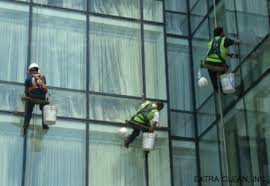 August 2019
August 2019
Smart windows may soon lead to wide-scale adoption, more comfortable condos and lower energy costs.
Smart windows conserve energy by automatically switching from clear to tinted thus controlling heat and light from the sun. Comfort settings can be controlled within the suite.
Conventional windows lose about a third of the energy used to ventilate, heat and cool. Smart windows can reduce these losses. The cost of producing and purchasing smart windows is expected to decline as they become more economical to produce.
University of British Columbia (UBC) researchers have identified a new way to make glass change colour in response to electricity. It uses ultraviolet light to transform a liquid solution, contained within the glass, into a film that coats the glass. The film remains transparent until electricity turns it blue.
Airports in the United States are currently testing a similar technology to keep waiting and restaurant areas more comfortable. Early results are temperatures about 15C cooler during days when the sun is strong. Travellers have shown a preference to these areas over similarly available spaces without smart windows.
Smart windows currently cost five to ten times more than conventional windows. This new method does not require sophisticated equipment thus reducing production costs.
This new technology is presented in a paper in Chem.






